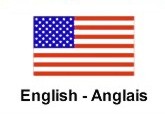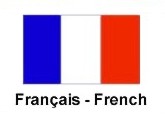NOTE: The letterhead paper has the various United Service to Holland, Inc. officials at the
page left. These have been placed at the bottom of this page.
United Service to Holland, Inc.
70 Pine Street, New York 5, N.Y.
Telephone WHitehall 3-6274
Successor to
Queen Wilhelmina Fund, Inc.
American Relief for Holland, Inc
March 3, 1949
Mr. Charles L. Todd
Ex. Dir. Operation Democracy, Inc.
369 Lexington Avenue
New York 17, New York
Dear Mr. Todd:
As you know, our agency has been cooperating with Operation Democracy, Inc., and deeply appreciative of its services
to our work and cause. There, is, however, one phase of our joint endeavor which we believe should receive more
emphasis.
It should be possible in some way to bring home to American groups desiring to affiliate with European communities,
organizations, and individuals that there are basic differences between American and European backgrounds, habits of
thought, attitudes, approaches, and opinions. Comparatively few Americans previously have had direct personal
contacts with Europe and may be inclined to regard the slower pace of the European as some form of inefficiency or
laziness which must be "corrected." This is true especially in Holland where, as you know, time is of less
importance than here, mental processes are much slower, and there is not the slightest tendency to rush into
operations without due process of thought. This situation can be difficult for impatient Americans and, unless they
recognize it as characteristic of Europeans generally, they may tend unknowingly and unintentionally to create
strained international relationships which can be harmful.
We would like to suggest that your organization endeavor to make Americans and their organizations realize that
they are dealing not only with people of different backgrounds, training, and opinions, but who also have been
through a war experience which is not at all conducive to energy and efficiency. In other words, patience and
diplomacy must govern American undertakings in the field of affiliations. There must also be understanding of the
opinions and the achievements of Europeans, and respect for them. It is quite possible that while a small European
community may not have well-paved and brilliantly illuminated streets, nor the homes equipped with central heating,
the community does have assets which are lacking in America. To the European, a substantially-built house may be
more important than central heating, trees and flowers along the street more enjoyable than paving.
Furthermore, it might be helpful to advise American groups to keep their eyes and minds on the main objective,
which is friendliness and understanding among people, not the competitive comparison of physical assets and
liabilities. Also, we must expect that some Europeans will not be, at first, as understanding and as diplomatic as
could be expected. On both sides of the ocean, therefore, we have to look for an adjustment of people to people.
That is, admittedly, a difficult job, but it is also the heart of good international relations, In learning this
fact, American groups will come increasingly to appreciate the extreme difficulty of solving the world's problems
and, especially, the improbability that solutions can develop overnight.
Possibly it is necessary that all of us must realize that even the voluntary offer of friendship may be
misunderstood and suspected in Europe, where people have, and have had, good cause to be suspicious of those they
do not know and are not prepared immediately to trust. Also it should be understood that while many Europeans need
help, they do not necessarily want it! Many of the European nations are proud people who would prefer not to be in
the position of receiving help, or even of needing it. Additionally, their postwar needs and wants vary greatly,
so that it is most wise to build any affiliation program upon a foundation of mutual respect, trust, and
understanding before proceeding with any help program. Indeed, in many cases it may be found that spiritual and
cultural needs in Europe are regarded as much more important than material aid. While this attitude may seem
strange to our people, still it should be respected.
In this regard, you will recall our own consternation at the request of the burgomasters of Dutch communities for
music scores and sports equipment when we knew that the youngsters needed clothing. Those burgomasters realized
better than we that music and sports could lift the youngsters out of their surroundings were they given the basic
materials for lasting cultures or activities.
We like to think that these problems, shared among hundreds of American communities and thousands of American
people, will be helpfully educational in creating basic understanding of the differences and difficulties which
arise so naturally, if annoyingly, in relationships between people. Such experiences should generate admiration
for the United Nations and for other governmental efforts at world peace and understanding.
Very truly your,
(Signed) Victor H. Scales
Victor H.Scales
vhs/ne
[Letter left border below.]
Executive Committee
J. Theodor Cremer, Pres.
Mrs. Edgar W. Leonard, Vice Pres.
J. A. deLanoy, Vice Pres.
A. Phillppe von Hemert, Secy. Treas.
A. D. Beatebrourtje
R.G.A. van der Woude
J. F. van Hengel
D. Van Itallie
C. van Stolk
F. R. Wierdsma
Victor H. Scales, Asst. Secy
Min O. A. Savage, Asst. Secy.
BOARD OF DIRECTORS
Prof. Adriaan J. Barnouw, New York, N. Y.
A. D. Bestebrourtje, New York, N. Y.
John Bicknell, New York, N. Y.
Dr. Joseph P. Chamberlain, New York, N. Y.
J. Theodor Cremer, New York, N. Y.
Victor de Bont, Chicago, Ill.
Leon de Fremery, San Francisco, Cal.
A. H. de Goods, New York, N. Y.
John de Jong, Des Moines, Ia.
L. de Koning, Spokane, Wash.
Mrs. J. de Kuyper, Detroit, Mich.
J. A. deLanoy, Now York, N. Y.
Cecil B. deMille, Hollywood, Cal.
Rev. John A. Dykstra, Grand Rapids, Mich.
Col. Lloyd W. Elliott, New York, N. Y.
Peter H. Friesema, Detroit. Mich.
John Hokman, Holland, Mich.
John C. Hoekje, Kalamazoo, Mich.
Harry J. Johnson, New York, N. Y.
Dr. Norman Jolliffe, New York, N. Y.
Mrs. Jacobus C. Langendoen, Boston, Mass.
Mrs. Edgar W. Leonard, New York, N. Y.
Elliott McAlliser, San Francisco, Cal.
Clarence G. Miohalis, New York, N. Y.
J. Oostermeyar, San Francisco, Cal.
Hon and Mrs. William Phillips, Boston, Mass.
Lewis E. Pierson, New York, N. Y.
Howard D. Roelofs, Cincinnati, 0hio
Rev. Dr. Edgar F. Romig, New York, N. Y.
Mrs. Walter Tangeman, Cincinnati, 0h.
Hon. Richard M. Tobin, San Francisco, Cal.
Kelvin C. Vanderlip, Los Angeles, Cal.
A. Vanderspek, Seattle, Wash.
R. J. Vanden Berg, Pella, la.
Mrs. J. Van den Bosch, Cleveland, 0hio
H. van der Horst, Olean, N. Y.
R. O. A. van der Woude, New York, N. Y.
J. F. van Hengel, New York, N. Y.
D. Van Itallie, New York, N. Y.
C. van Stolk, New York, N. Y.
John Visser, Milwaukee, Wis.
A. Phillips von Hemert, New York, N. Y.
W. K. von Weller, Detroit, Mich.
Willard C. Wichers, Holland, Mich.
F. R. Wierdsma, New York, N. Y

